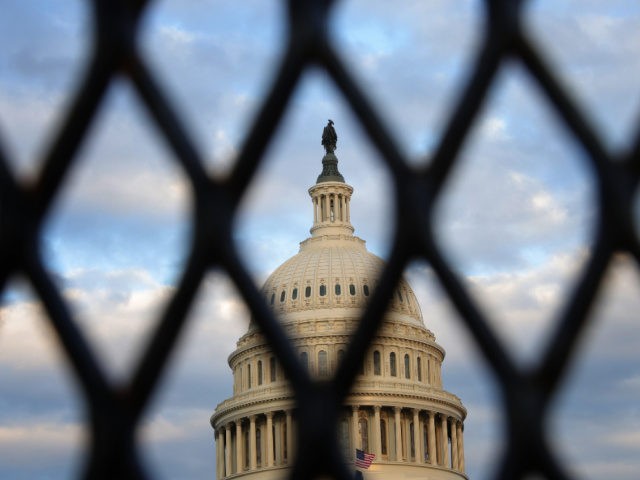Shortly after voting to allow witnesses to testify at the second impeachment trial of former President Donald Trump, Democrats reversed course in an effort to prevent further delays to the Biden administration’s legislative agenda.
On Saturday, the members of congress arguing in favor of Trump’s conviction asked the United States Senate to allow witnesses to be heard. The move came as impeachment managers, led by Rep. Jamie Raskin (D-MD), hoped that witness testimony would prove that Trump helped incite the January 6 riot at the U.S. Capitol.
Raskin, in particular, argued from the floor of the Senate on Saturday that it was vital to hear the testimony of Rep. Jaime Herrera Beutler (R-WA) before a verdict was reached. Herrera Beutler has claimed that on the day of the riot, House GOP Leader Kevin McCarthy (R-CA) told her Trump had suggested the mob storming the capitol “was more upset about the election than” the lawmakers under siege.
In a 55-45 vote on Saturday, the Senate agreed that having Herrera Beutler and other witnesses testify would be appropriate before a verdict could be decided. The decision, however, quickly proved to be controversial among congressional Democrats.
While nearly ever member of the Senate Democratic conference is likely to vote to convict Trump at the trial’s conclusion, many feared that a lengthy witness review process would delay even further the legislative agenda of the newly installed Biden administration.
“If they want to have witnesses, I’m going to need at least 100 depositions, not just one,” Michael Van der Veen, an attorney representing Trump in the impeachment trial, said on Saturday.
The prospect of an extended testimony period forced Democrats to reverse course. Shortly after voting to allow witnesses, impeachment managers struck a deal with Trump’s legal team. The compromise allowed the trial to move towards closing arguments without in-person witness testimony. Instead the impeachment managers simply inserted Herrera Beutler’s claims about the McCarthy conversation into the trial record.
With both sides agreeing to the compromise, the chances of a verdict being reached on Saturday were all but assured. It also ensured that Democrats, who only control the Senate because of the tie-breaking vote of Vice President Kamala Harris, would be unlikely to muster enough GOP support to hit the 67 votes required for conviction. This was proven when only seven Republicans, including two who are retiring next year, opted to join Democrats in voting to convict.
More broadly, though, the Democrats’ decision to cave on witnesses underscored the predicament in which President Joe Biden finds himself after less than a month in office.
To date, Biden has only been able to secure the confirmation of eight cabinet members from the Senate, while more than 20 nominations still linger in committee. Likewise, the administration’s $1.9 trillion coronavirus relief package has also stalled in Congress.
Since the relief program was unveiled, Democrats have debated on the best way to ensure its approval. Initially, Biden had hoped the measure would garner bipartisan support. That outcome became increasingly unlikely after Democrats insisted on including bailouts for cities and states, as well as a hike in the minimum wage to $15 per an hour—all of which Republicans, most notably in the Senate, oppose.
As such, Senate Majority Leader Schumer (D-NY) has opted to pass the spending plan via budget reconciliation. The tactic allows the Senate to pass legislation affecting spending, revenue, and the debt ceiling with a simple majority of 51 votes.
Biden, who has shown lukewarm support for splitting the relief legislation into separate bills as proposed by Republicans, has been largely overruled by Schumer. Even through budget reconciliation it is unclear if the $1.9 trillion package can remain intact. The reconciliation process specifically is governed by narrow guidelines as to what can and cannot fall within its scope. It is also unclear if Schumer can line up his entire conference behind the package if it survives rules challenges.
Even though the Democrats’ decision to jettison witness testimony increases the timeline of consideration of the relief package and other Biden priorities, the White House is denying it played role in the decision.
“The White House was not involved in discussions over calling witnesses, or the deal that was made,” an administration official told the Hill.

COMMENTS
Please let us know if you're having issues with commenting.